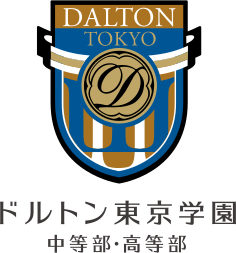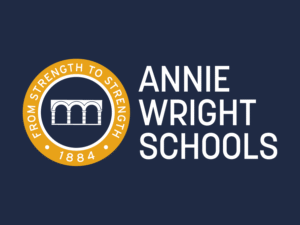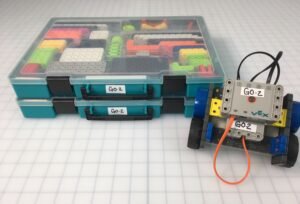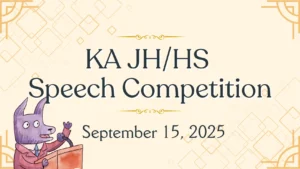Transcript
Please note: Clicking on the timestamp will take you to the start of their clip in the video. Clicking on the school name will take you to their website.
Chuo International School – 00:10-00:44
ISTimes Global: What are your plans for uh like the curriculum that you’ll be using for the school?
Chuo International School: So, right now we run a Montessori Plus curriculum in our Sunshine Kids Academy. And that is going to be our driving curriculum into uh Chuo International School. We are also in the process of applying for the Cambridge International program and we are about 90% there with our application and our process and we just need to finalize those details. And so hopefully we will be an endorsed Cambridge school by September.
Dalton Tokyo – 00:44-01:44
ISTimes Global: Can you tell us a little more about academics at Dalton? What is learning like at the school?
Dalton Tokyo (Kevin): Learning is at our school, our school is actually more like a college. Uh the students are responsible for their own learning. Uh we are uh partners in the project and uh the students pursue very much their own interests with our guidance and support. In English, we split our learners into three groups depending on their ability. That’s a standard, advanced and academic. The academic students are many of them have lived abroad. So their first language is almost English. So when they come back to Japan, we’re a great home for them. Our uh standard students are students without any experience of English. And if students are interested in English and they work hard, they do uh go up, they can increase their grade from advanced through to academic by the end of their studies.
EF Academy – 01:45-02:44
ISTimes Global: How about things outside of the classroom? How do children get involved in their community?
EF Academy (Takumi): So our students uh are heavily involved in um extra curricula that we provide. So, you know, whether sort of in the face of um uh sort of, you know, outings or sort of any sort of activities that, you know, get students out of their campuses. So we organize things like uh, you know, sporting activities, we organize um uh, you know, sort of barbecues and and um all these sort of competitions between students as well. So students would never get bored outside their classrooms, you know, either. So there will always be things to do for everyone at on campuses. Um and our students are enjoying their campus life fully. And um and that’s one of the reasons why a lot of students actually come to EF campuses to to study. So, so that’s sort of, you know, extra curricula that we organize as a as a school.
KA International School – 02:46-03:26
ISTimes Global: As children graduate from Kais, what are some of the memories that you see them leaving your school with?
KA International School (Maha): Yeah, that’s a good question. I think, um, the one thing that I think the feeling that they’re left with is the sense of community that we have. Um, we’re a small school, um and so we’re able to build really strong connections with each other. Uh, we get to know the kids really, really well, um, and they get to know us really well. We develop connections on a personal level. Uh, we really individualize the learning experience for the students, and I think they’re left with that sense of community, a strong feeling uh of connection with each other and with the teachers and just with the whole broader community. Yeah.
Brighton College (Singapore) – 03:27-04:55
ISTimes Global: Awesome, sounds great. Can you tell us a little more about learning at your school? What are academics like?
Brighton College Singapore (Nick): Sure. Okay. So we’re part of the Brighton College Network of schools. Brighton College in the UK uh has been in existence since uh 1845. Uh it today it’s one of the most successful co-educational schools in Britain. Uh its pupils are always amongst the very best achievers in terms of its GCSE results and its A-level results, the the examination systems that are taken in in British schools. Uh this year some 43 of its uh graduating uh pupils have been offered place at either Oxford or Cambridge University, uh which is an extraordinarily successful rate. So it’s fair to say that the Brighton College Network of schools has a very uh the key emphasis on academic success and supporting its the children that come through its doors to doing incredibly well. So although we don’t have any examination results yet because we’re a new school and our first examinations won’t come for a couple of years, we absolutely want to emulate the same sort of success. And so, yeah, we make sure that we provide uh fantastic teaching, small class sizes, uh you know, a bespoke personalized curriculum to help every single one of our pupils make the most successful possible. And I’m really confident that when our first uh cohort takes their IGCSE exams in a couple of years time, they’re going to do really, really well.
Harrow International School APPI Japan – 04:56-05:44
ISTimes Global: Could you tell me a little bit about academics at the school? What is learning like there?
Harrow International School APPI Japan (Stephen): Okay, so the academics are based on a British curriculum model. Um, fundamentally because that requires, well Harrow school of course. But fundamentally because it requires youngsters to be able to retain knowledge, understanding, develop skills, but also to be able to then apply those into context that they may not have thought of, apply their knowledge in order to show deep learning. Obviously, therefore, what goes on in the classroom is to make sure that the right questions are asked to make students think, that they’re given the right opportunities to work together to collaborate and think creatively so that they are properly prepared for the challenges that they’ll face in the adult world.
NUCB International College – 05:46-07:07
ISTimes Global: Cool, nice. How about extracurricular um activities at your school? What’s it like outside of the classroom for your students?
NUCB International College (Nadine): Yeah, so our school is a boarding school. It’s a full boarding school. So students uh have opportunities in the boarding house for extracurricular activities as well. So usually in the nighttime, there are some sports activities or uh uh things uh usually in the university campus, we share our sports facilities with them. So on the weekends, there are, for example, kudo, Japanese archery or judo available for our students. And then about once a month, they’ll have uh boarding excursions as well. And during the weekday, we have something called the engage program. So that’s your regular uh after school extracurricular activities. Uh but the unique thing in our school is that we change those every three months. And we actually have a lot of uh student councils and one student council is the engage council. So they decide what the extracurriculars are by you know, asking the other students what the demand is. And of course, some things are only available in summer, some things are only available in winter. So outdoor sports is more summer, but this changes uh every three months.
Kokusaba Tutoring – 07:09-08:15
ISTimes Global: Nice to meet you too. Can you tell us a little bit about your company’s background and history?
Kokusaba Tutoring (Ishanaz): Sure. Uh, Kokosaba learning uh has started in 2017. Um, we started back when I was a second year student at Waseda University. Um, a little bit about my background. I was born and raised in Japan. I went to a Japanese school until I was in grade five. I don’t look it, but my parents are from overseas and have been in Japan for a long time. Um, and I pretty much went through a Japanese upbringing, so I actually couldn’t speak English until I was in middle school. So, during middle school, my parents decided to enroll me to an international school and I really struggled at first. It really took me about three to four years to um, you know, fit in not just academically, but also culturally and socially into an international school environment. Um, I really wished back then that I had a tutoring a tutoring service for international school curriculum. And fast forward to university, I had a great community of uh, you know, students around me who had similar experiences. So that’s how Kokosaba was born.
Global Indian International School – 08:17-10:41
ISTimes Global: Sounds wonderful. Can you give us an idea of what a day in the life of a student at your school is like?
Global Indian International School (Suparna): Correct. You know, the interesting, another interesting part is in GIS, we have around 45 to 50% of Japanese, 40 to 50% of Indians and then around 10 to 10% of other nationalities as such. So what happens is a day starts with what we call the morning assembly. So it this itself, it’s a 10 minute slot which gives each and every child an opportunity to go. It starts with a school general prayer, a thought for the day, news and if there are interesting facts, then they have it. And from there, they go for their regular schooling. As I mentioned earlier, which is a good mix of strong academics with co-curriculars and sports activities. And apart from that, we have weekly schedules where they have uh maybe it’s a literary week or a book week. So during these things, children take leadership roles to take over the entire program, conduct the entire program. For example, in the book week, we have an author coming in and you know, sharing his or her thoughts. So for a budding writer, this is a very good opportunity to ask what how how do you get your characters as such. So we have had uh famous noted uh children’s authors like Anita Nayar, Michelle Harrison from UK, Sudha Murthy, uh if you know Infosys, if you know the Indian IT industry, Infosys heads uh wife who is a philanthropist as well as a children’s author. So all these people have interacted with children. So a daily starts with a good mix of this thing and as well as they have time to imbibe the culture of Japan as well as other nationalists. We have around 30 nationalities in the school. So children are very lively. I would definitely encourage you to come to our school for a uh for a visit and you will get to see the children in action. I think they, I mean, whatever I’ve spoken, I think they’ll speak volumes and uh that is how the life uh they enjoy, I take it. Yes.
Kikokushijo Academy – 10:42-12:15
ISTimes Global: Nice, sounds great. Can you tell us a little more about academics at KA? What’s learning like there?
Kikokushijo Academy (Chris): Sure. So, uh learning is wonderful. Uh it’s an adventure. Uh I would say the program that we uh are most proud of that we focus on is our sixth grade Juken program. So these are students that are trying to get into a junior high school. Uh there are two paths into most junior high schools. One is the regular entrance exam and one is the special returnee program. So we specialize in preparing kids to enter through that program. Uh it’s very challenging and tough. It’s a great year of growth for the students, both emotionally, intellectually. Uh and so we focus heavily on that. We’re very proud of our ability to get students into all of their schools of choices. Uh that’s something that we’re very proud of. And we think the we are able to have that success with students because we don’t focus just on teaching to the exam, but holistically growing the entire uh the entire child. Uh one other unique program that I’d like to offer about academics is KA Plus. So it’s a subscription online program for group live lessons. So these are not pre-recorded lectures. Uh it’s actually a uh live teacher along with other students. So not only can uh students interact with the teacher, but with other students as well. Uh and these classes range in topics from more academic standard vocabulary, grammar, etcetera, to more uh fun topical classes on let’s say history or science or mathematics.
Phoenix House International School – 12:16-13:17
ISTimes Global: How about outside of the classroom? How do students get involved in their community?
Phoenix House International School (Claire): Yeah, clubs is a big part of life. As I said, we’re very academic, but we also focus on that wider curriculum, the enrichment. Um so we do have clubs every single day uh from 3:40 to 4:40. There’s about I think this term we’ve got about 85 different clubs going on, lots of things. Um screen golf, music, choir, drama, um football, lots of sports, running club, we’ve got fencing club, ballet, um you name it, it’s in there. So children have the opportunity to try lots of different things. And we think that’s very important at prep school age. It might be that they pick up a violin and they love it and they do it for the rest of their lives. It might be that actually they think that’s not for me and they try something else that they’re really passionate about. So, um we do encourage children to really get involved in all those clubs, whether that’s five a week, three a week. Um we do like to see them engaging with the the wider curriculum.
Sunshine Kids Academy – 13:18-13:48
ISTimes Global: Awesome. How about the students who graduate from your school? What are some of the memories that your students typically they have of their time at your school?
Sunshine Kids Academy (Eden): Um, so a lot of our teaching also involves SDGs from the UN. And we instill those as we’re teaching and we hope that the kids when they graduate, they continue with that teaching. They continue with like helping the community with making sure the environment is nice, with just generally being good, good all around people.
Learning Tree International School – 13:50-14:48
ISTimes Global: Emily, can you tell me a bit about academics at your school? What’s learning like at the Learning Tree school?
Learning Tree International School (Emily): Yeah. Our school is um, like Fumi said, very small, very intimate. So we really value small classroom sizes so that each uh child can be catered to individually. Um, we have multi-grade classrooms, so students who want to push and challenge themselves more can go up to higher grade levels. Um, and students who need foundational skills can work on those at at their own pace. Uh, our curriculum is American Common Core, but we incorporate things like research and inquiry. We do a lot of um hands-on learning and students uh are guided by their teachers and teachers are also guided by their students. So if students, for example, are really excited about uh a specific topic, whether it be science, then that is kind of where that might take them. It’s a really collaborative um environment for our students to learn and they really enjoy that element of things.
Rugby School Japan – 14:49-16:47
ISTimes Global: Okay. Nice. Can you tell me a little bit about uh how students at your school get involved in the community outside of academics? So like the extracurricular sorts of things.
Rugby School Japan (Anthony): Okay, great. Yeah. So what we call it uh co-curricular program, which is so each day the students will have their, you know, normal lessons, of course. And then every student has to do a co-curricular uh activity or course each day, Monday to Friday. Uh and they can choose. So it could be something different every day or maybe two or three different things a week from sports, drama, debate, science club, uh, you know, technology club, could be anything. We offer over 80 different activities that they do. Um, and some of these will involve going outside of the campus, of course, and mixing with the community. Um, where we’re located is uh Kashiwa Noha campus, which is uh smart city. So, we’re on the same area as uh one of the campuses of Tokyo University, also Chiba University. So we make sure we have a strong relationship with them. We often have uh uh business people and entrepreneurs come to the school and do activities with our students. Um, also professors, visiting professors from Tokyo University. Um, and another example would be the computer club, they uh visited the Google head office in Tokyo and met the CEO and uh they were talking about uh, you know, how uh especially how women can get into this kind of engineering uh positions that Google offers. So there’s a lot of activities with the community and like co-curricular activities that we do because that’s extremely important for our school. Not just the academics, it’s all about other developments. Yeah.
North London Collegiate School Kobe – 16:49-18:03
ISTimes Global: Okay. Nice. Can you tell me a little bit about uh how students at your school get involved in the community outside of academics? So like the extracurricular sorts of things.
Rugby School Japan (Anthony): Okay, great. Yeah. So what we call it uh co-curricular program, which is so each day the students will have their, you know, normal lessons, of course. And then every student has to do a co-curricular uh activity or course each day, Monday to Friday. Uh and they can choose. So it could be something different every day or maybe two or three different things a week from sports, drama, debate, science club, uh, you know, technology club, could be anything. We offer over 80 different activities that they do. Um, and some of these will involve going outside of the campus, of course, and mixing with the community. Um, where we’re located is uh Kashiwa Noha campus, which is uh smart city. So, we’re on the same area as uh one of the campuses of Tokyo University, also Chiba University. So we make sure we have a strong relationship with them. We often have uh uh business people and entrepreneurs come to the school and do activities with our students. Um, also professors, visiting professors from Tokyo University. Um, and another example would be the computer club, they uh visited the Google head office in Tokyo and met the CEO and uh they were talking about uh, you know, how uh especially how women can get into this kind of engineering uh positions that Google offers. So there’s a lot of activities with the community and like co-curricular activities that we do because that’s extremely important for our school. Not just the academics, it’s all about other developments. Yeah.
Saint Maur International School – 18:04-19:42
ISTimes Global: That sounds great. Can you tell us how students get involved in the community outside of academics? So like not just in a classroom learning, but other ways that the students get involved.
St. Maur International School (Jessica): Yeah, we have a really rich, abundant, um variety of extracurricular activities as well. Um we have a lot of after school clubs that we offer at school. Uh for example, for elementary school, many different sports, we have basketball, football, tennis, we have Japanese martial arts, um Kendo, Aikido, we have Jiu-Jitsu, um uh also for those who are who want to do something besides sports, we have um strings, so instruments, cooking clubs, drama club, um pottery. So everything for everybody and we have three rounds, so they’re kind of like seasons. So they can try something different every season. Um and that’s how they stay active and balanced. And maybe David could explain a little bit more about secondary because we have a lot uh wide range of extracurricular activities as well.
St. Maur International School (David): So we run the extracurricular activities and various programs to fit each um the age levels. So from all from Montessori, um certain types of clubs and extra quick activities to elementary school, to secondary school. Of course, as they get older, we want them to be professional in that area. So we also offer more Model United Nations, um World Scholars Cup and we connect with other schools including Bay schools for activities as well.
Malvern College Tokyo – 19:43-21:24
ISTimes Global: Nice. Can you give me an idea of what a day in the life of a student at Malvern is like?
Malvern College Tokyo (Bethany): Of course. So, our students start their school day at 8:20. So, they’ll, some most of them will arrive around 8:00 a.m. or so. A lot of them will come through, they’ll be greeted by one of us staff members. Um, a lot of them will kind of like hang out in their common areas and then when it’s time for class, they’ll move on. Um, throughout their day, they may be, maybe going to STEM class or art class, maybe they’re having math class or English. Um, their classrooms will actually look a little bit different in the elementary and the junior high school. The elementary school is a lot more fun. There’s uh a lot more like activities and things like that inside the classroom, whereas the junior high school students are kind of moving towards the activities. Um, they’re kind of up and about a lot more. Um, we do know, I because of the way I do my work, the students during their morning break time, they have a really fun time just in their common areas. Um, even if it’s raining outside, uh, they have some lounging areas. The kids really love the Yogibo on our campus. Um, they can hang out in the library. If a teacher’s available, they can go to the dance room and practice their upcoming competitions, things like that. Um, lunchtime is also really fun for them because it’s not them eating in their classes, they’re eating in their houses. So, kind of like Harry Potter, we have those houses. So, we have a lot of like our older kids are working together with our younger kids. They’re really great role models, playing together with them, all of those kinds of things. And then as their school day comes to an end, um, a lot of them will stay on campus until about 4:00 or 5:00 p.m. uh, doing some after school activities, working together with teachers, doing all kinds of stuff. Um, a lot of them also just love to just hang out at school and have fun until it’s time for them to go home.
Capitol Tokyo International School – 21:26-22:11
ISTimes Global: Next, please tell us about academics at your school. What is learning like at the school?
CTIS (Aarzoo): Thank you. At CTIS, an IB school for both primary and middle years programs, learning is rooted in real-world inquiry-based exploration. Through project-based learning, students engage in STEAM, languages, arts, and design, connecting their students to both global and local issues. Classes take place in flexible, tech-rich environments with one-on-one devices and a bilingual English-Japanese library. CTIS nurtures curious, reflective, and multilingual learners who are ready to make a meaningful impact on the world.








